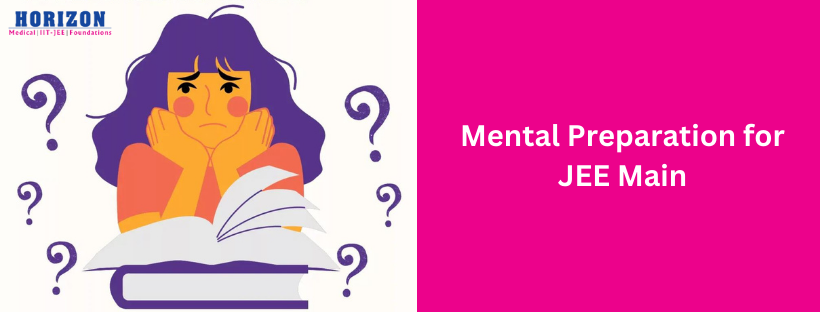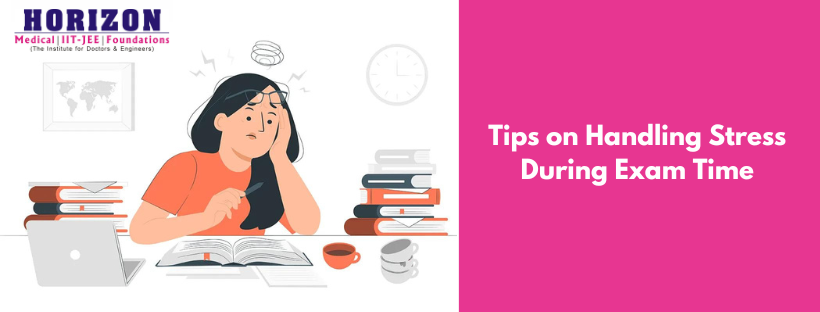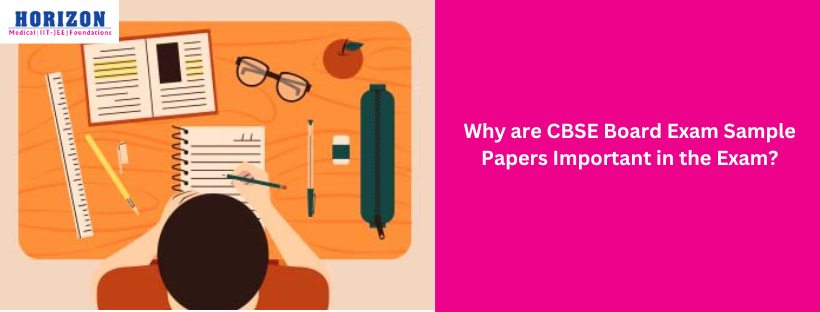Mental Preparation for JEE Main
The Joint Entrance Examination (JEE) Main is an academic milestone that demands not only intellectual prowess but also robust mental preparation. This rigorous examination is a gateway to some of the most prestigious engineering institutions in India. Achieving success in the JEE Main requires a holistic approach, and mental preparation is a pivotal component of this journey. In this blog, we will delve into various strategies and techniques to nurture mental resilience and fortitude for aspiring JEE candidates.
Understanding the Importance of Mental Preparation:
- Pressure and Stress Management:
The JEE Main is notorious for its intensity and competitive nature. Managing stress is crucial as it directly influences performance. Developing resilience and coping mechanisms equips candidates to navigate the exam environment with composure.
- Long-Term Consistency:
It takes a marathon to prepare for JEE, not a sprint. Increasing one’s mental toughness guarantees consistency and long-term focus. For thorough syllabus coverage and efficient revision, this is essential.
- Positive Mindset:
Cultivating a positive mindset is essential. A positive outlook not only enhances problem-solving abilities but also contributes to overall well-being, fostering a healthier approach to challenges.
Strategies for Effective Mental Preparation:
- Goal Setting:
Clearly define short-term and long-term goals. Break down the JEE syllabus into manageable segments and set realistic study targets. This helps in maintaining a sense of purpose and direction throughout the preparation journey.
- Time Management:
Efficient time management is a cornerstone of mental preparation. Create a realistic study schedule that balances study sessions, breaks, and leisure activities. Prioritize topics based on difficulty and allocate time accordingly.
- Regular Self-Assessment:
Periodically assess your progress through mock tests and practice papers. This not only helps in identifying strengths and weaknesses but also simulates exam conditions, reducing anxiety during the actual test.
- Mindfulness and Relaxation Techniques:
Incorporate mindfulness practices and relaxation techniques into your daily routine. Meditation, deep breathing exercises, and yoga can help calm the mind, enhance concentration, and alleviate stress.
Building Mental Resilience:
- Embracing Failure as a Learning Opportunity:
Understand that setbacks are an inherent part of any challenging journey. Instead of viewing failure negatively, treat it as a learning opportunity. Analyze mistakes, adjust your strategy, and move forward with renewed determination.
- Positive Affirmations:
Engage in positive self-talk. Affirmations can boost confidence and create a constructive mental environment. Remind yourself of your capabilities and focus on the progress made, no matter how small.
- Seeking Support:
Share your concerns and thoughts with friends, family, or mentors. A strong support system can provide encouragement, guidance, and a fresh perspective, alleviating mental stress.
- Balancing Academics and Recreation:
Striking a balance between study and recreation is vital. Engage in activities you enjoy, whether it’s sports, hobbies, or spending time with loved ones. A well-rounded approach contributes to mental well-being.
Tips for Exam Day Mental Preparation:
- Adequate Rest:
Make sure you get enough sleep the night before the exam. Performance can be impacted by fatigue’s impairment of cognitive abilities. In order to stay focused and awake, aim for 7-8 hours of sleep.
- Positive Visualization:
Imagine passing the exam with ease. Imagine yourself answering questions with composure, making the most use of your time, and confidently exiting the exam room. This uplifting mental image can assist in lowering anxiety.
- Mindful Breathing:
Practice mindful breathing techniques to stay centered and calm during the exam. Deep breaths can help regulate stress levels and enhance concentration.
- Focus on the Present:
Do not obsess over past errors or worry about unanswered questions in the future. Concentrate on the current query. Retaining awareness of the present moment improves judgment and clarity.
Conclusion:
JEE Main is not merely a test of academic knowledge but a comprehensive evaluation of mental resilience and adaptability. By recognizing the significance of mental preparation and incorporating strategies like goal setting, time management, and stress reduction techniques, aspiring candidates can fortify themselves for the challenges ahead. Building mental resilience is an ongoing process that not only benefits exam performance but also lays the foundation for a successful and fulfilling academic journey. Remember, it’s not just about the exam; it’s about cultivating a mindset that embraces challenges and thrives in the face of adversity.
Horizon Academy diligently focuses on preparing students for JEE Mains by fostering a robust mental framework. Through a dynamic curriculum, the academy instills problem-solving skills, critical thinking, and resilience. Experienced faculty members guide students with personalized attention, ensuring a deep understanding of core concepts. Regular mock tests simulate exam conditions, enhancing time management and reducing stress. Emphasis on strategic study plans cultivates discipline and consistency. The academy promotes a positive learning environment, fostering peer collaboration and healthy competition. By nurturing both academic prowess and mental fortitude, Horizon Academy equips students to face the challenges of JEE Mains with confidence and competence.










